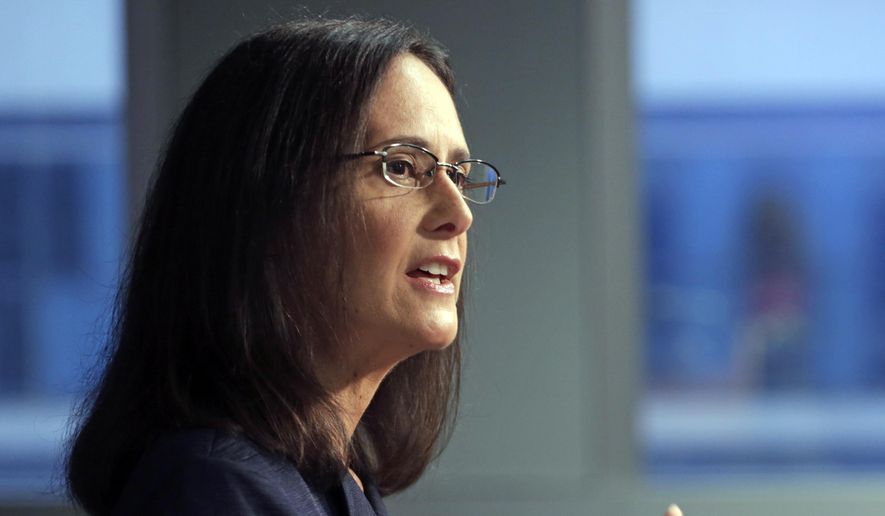SPRINGFIELD, Ill. (AP) - After the scandal that sent former Illinois Gov. Rod Blagojevich to prison, lawmakers adopted a raft of reforms that included creating a referee to intervene when bureaucrats reject citizens’ requests for government records.
Five years later, the “public access counselor” in the attorney general’s office has yet to respond to more than 2,800 appeals of Freedom of Information Act requests for information that a government agency deemed secret, according to an analysis of records obtained by The Associated Press.
That’s about one in five of all FOIA appeals submitted to the office since the law took effect in 2010.
While it means the office can claim more than 80 percent of its cases closed, the AP found that nearly 1,200 of the open cases have gone unanswered for at least two years.
The numbers concern legislators who pushed for the added layer of appeal, while a freedom of information advocate says delay means denial for citizens counting on prompt government information - and who believe the records are illegally being kept secret.
“The intent was to facilitate responses to the public at large seeking information,” said Sen. Kwame Raoul, a Chicago Democrat. “If you have (the appeals office) overburdened, that doesn’t carry out the spirit of the law.”
Ann Spillane, chief of staff to Democratic Attorney General Lisa Madigan, acknowledged the backlog but defended the bureau’s work, maintaining that, counting disputes over the open-meetings law, 85 percent of the pleas it handles have been settled.
The public access counselor received a monthly average of 285 appeals on FOIA and open meetings in 2013, a number that has jumped to 349 this year , according to the attorney general’s office.
The appeals are not just the domain of snooping journalists or buttoned-down law firms. More than four of five come from individual taxpayers - 2,320 of the total that remain unresolved.
The bureau has 10 lawyers and is interviewing to hire as many as five more, but turnover is constant, Spillane said. And because of the budget crisis, even with a growing backlog, Spillane said the attorney general will focus on preserving the current budget instead of asking for more.
“It’s not our goal for anyone to wait,” Spillane said. “In a perfect world, we would turn these around, each of them, as quickly as we can, but we’re dealing with a very high volume.”
When asked about it Friday, Republican Gov. Bruce Rauner bemoaned the “inefficiency, lack of productivity, lack of effectiveness, high costs” he says envelop state government.
“We’ve got to change that culture and be more responsive,” Rauner said. “I look forward to investigating that and seeing what I can do to help fix that.”
Before the appeals process was established, someone denied a request for public records had two choices: File an often-futile appeal with the agency or commit a significant bankroll to a lawsuit.
There is no difference “between extensive delay and denial,” said Adam Marshall of the nonprofit Reporters Committee for Freedom of the Press. Waiting two or three years for an answer “has a detrimental impact on your ability to know what your government is doing,” he said.
Jesus Palafox, an administrator with the pacifist American Friends Service Committee in Chicago, has filed 10 FOIAs since 2011 regarding schools’ ROTC military-training programs. He appealed three denials. One of those remains open from more than three years ago, records show. But he said the appeals office ruled in his favor on two in 2011.
He said it’s not unusual for him to check on his FOIAs’ status every other day. The frustration wrought by the process is evident in the advice he recently gave a colleague about filing one.
“Keep in mind,” he said, “that doing a FOIA request is easy. It’s just the constant follow-up you have to go through, the hoops.”
Rep. Jack Franks is a Marengo Democrat who was a lead sponsor of the appeals law with House Speaker Michael Madigan, the attorney general’s father. Given the state’s fiscal crisis, he suggested reducing appeals by imposing a fee on government agencies found in violation of the open-records law.
“Pay a few of those,” Franks said, “and taxpayers are going to get mad.”
Associated Press writer Sara Burnett in Chicago contributed to this report.




Please read our comment policy before commenting.